PHOTO ESSAY
On the outskirts of Pretoria: A back-breaking struggle for clean water
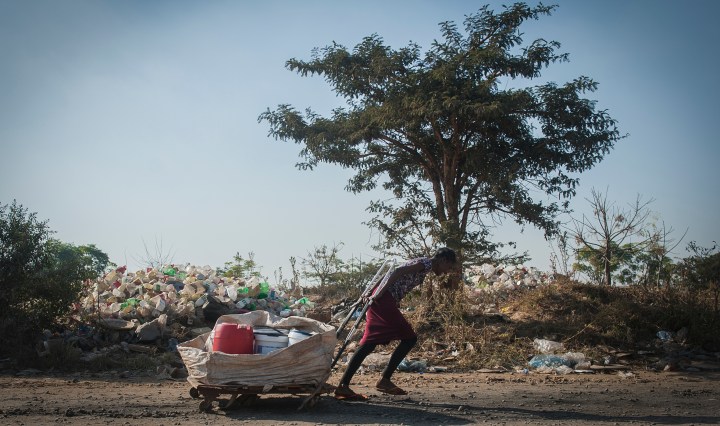
While the City Of Tshwane has provided watering points and daily drop-offs from tankers, the problem for Mooiplaats residents living on the far end of the informal settlement is the distance that needs to be covered to get water.
Nkensani Washimbwi walks several kilometres every two days to carry water from a water distribution point to her shack in the Spruit in Mooiplaats Informal Settlement on the outskirts of Pretoria.
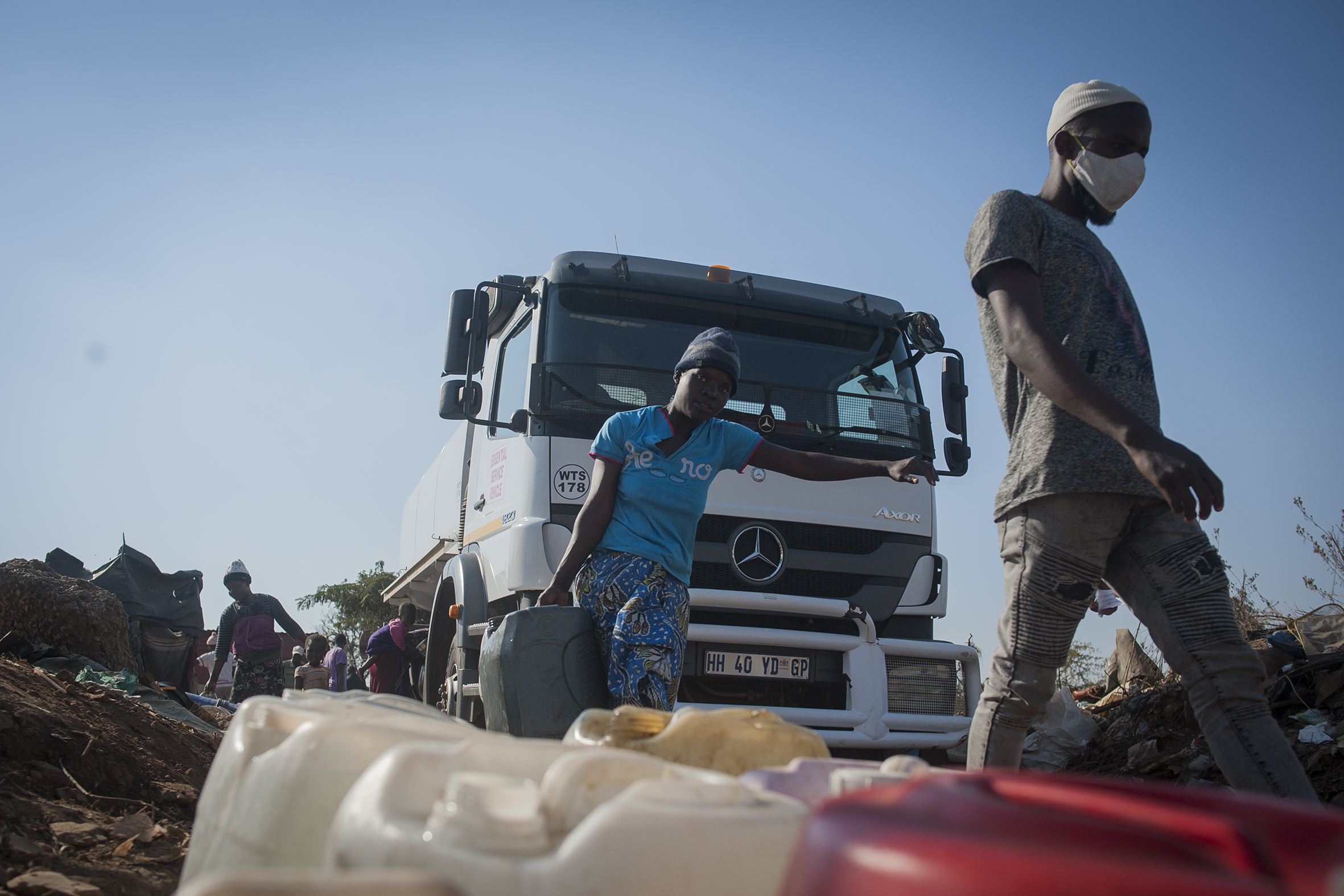
This image captured on 2 June 2020 shows a woman carrying a water container as a man walks by. (Photo: Shiraaz Mohamed)
Washimbwi, 32, lives with her two children and brother, who sometimes help to carry the water back to their home. She has to make several trips back and forth, with each trip taking about 30 minutes. She uses a wheelbarrow, which she loans from her neighbours, which enables her to carry more water containers on a single trip. She often has to carry the heavy 25-litre containers on her head – balancing carefully so as not to spill a drop as she makes her way down the gravel road back to her shack.
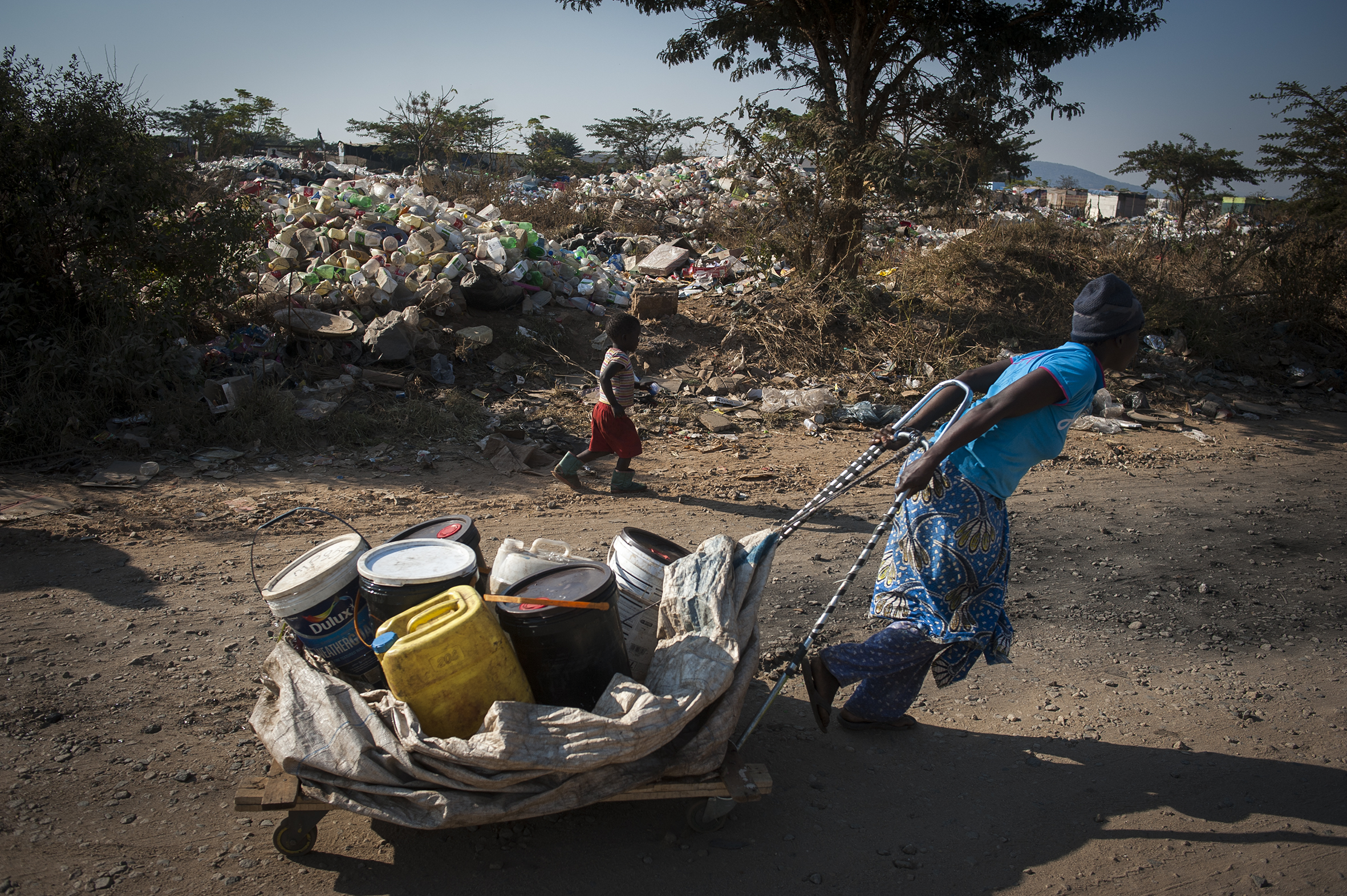
Residents complain that the water tankers and tanks supplying the area run out of water, leaving them in despair. (Photo: Shiraaz Mohamed)
“It is very hard, we have to go at 7.30am to get water from the truck. It is early and it is cold. I fill 16 containers with water and then have to carry it back. It is of no use speaking to our councillor to assist. We don’t even bother asking for help,” said Washimbwi.
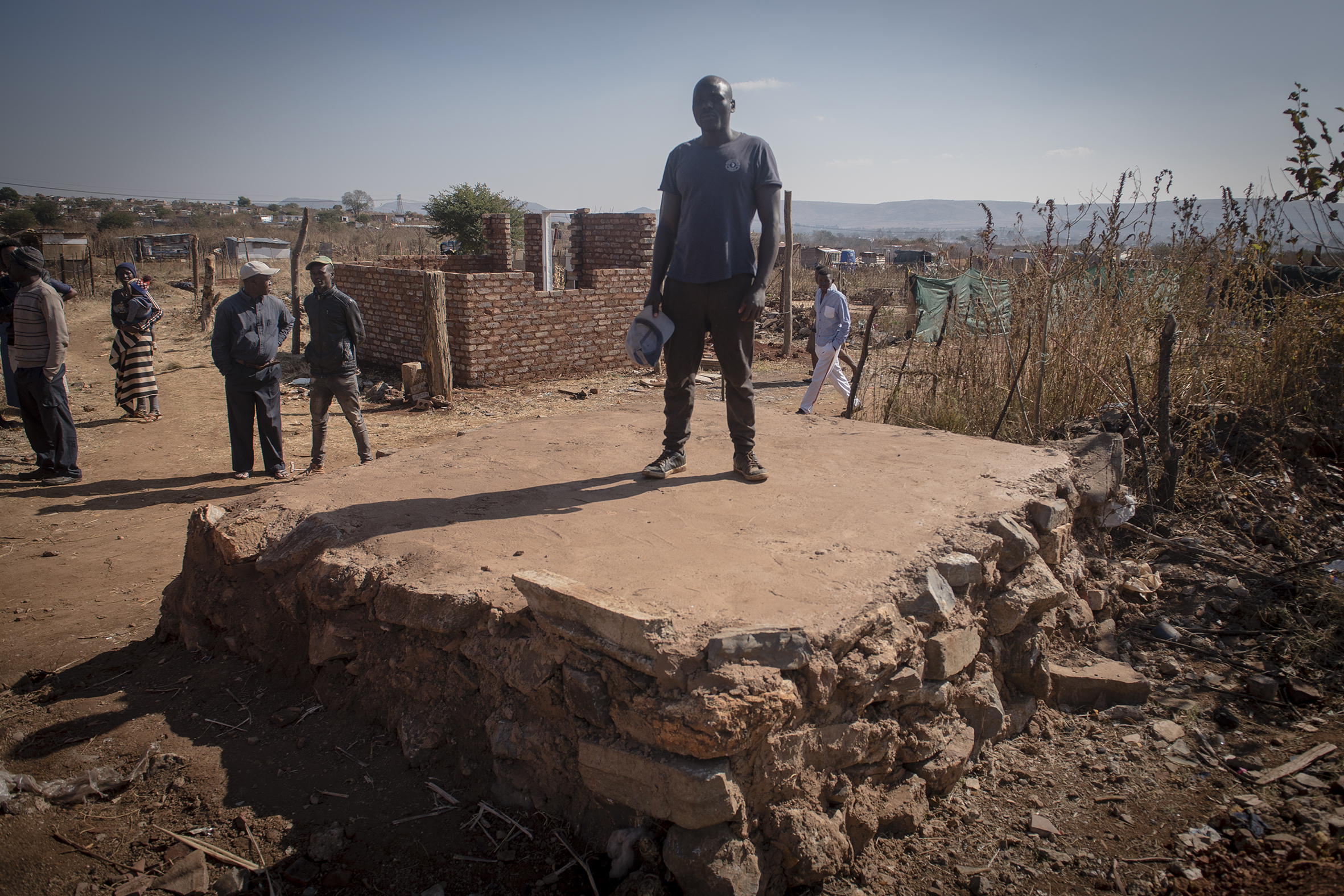
A resident stands on a foundation made to accommodate a 5,000-litre water tank. Residents tried to raise funds on their own to purchase a water tank, but their efforts were futile. (Photo: Shiraaz Mohamed)
While the City Of Tshwane has provided watering points and daily water drop-offs from water tankers, the problem for Washimbwi and other residents living on the far end of the informal settlement is the distance that needs to be covered to get water. Some residents complain that the City Of Tshwane’s tanks run out of water, leaving them with nothing.
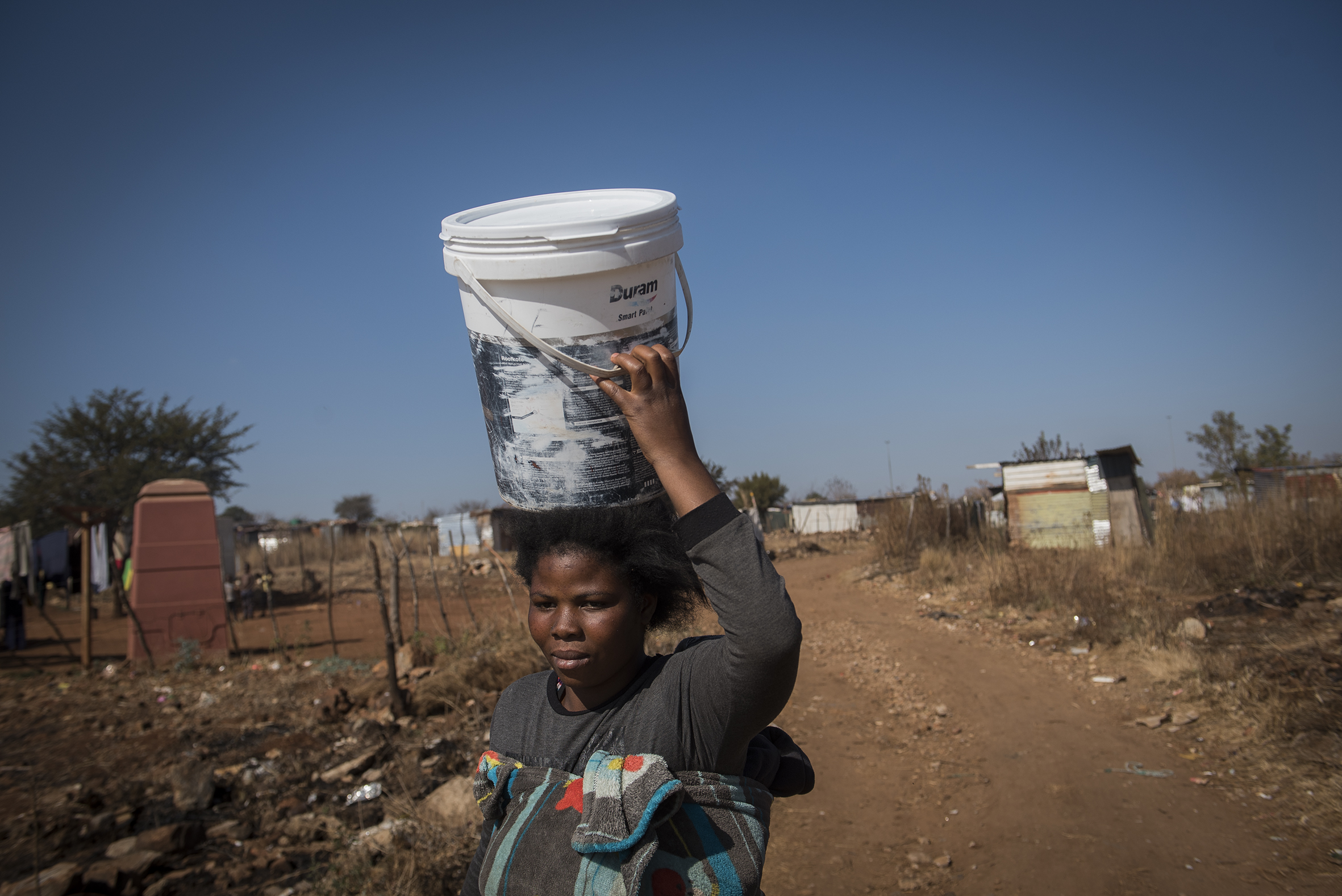
A woman carries a water container on her head as she heads back to her shack. Residents often spend hours walking back and forth collecting and dropping off water. (Photo: Shiraaz Mohamed)
Resident Crescencia Chikarigwi said: “People moved to Mooiplaats from other areas. This means there are more people living here now. Council provided water tanks which helped us, but with the population increasing, it is becoming more and more difficult to get water.”
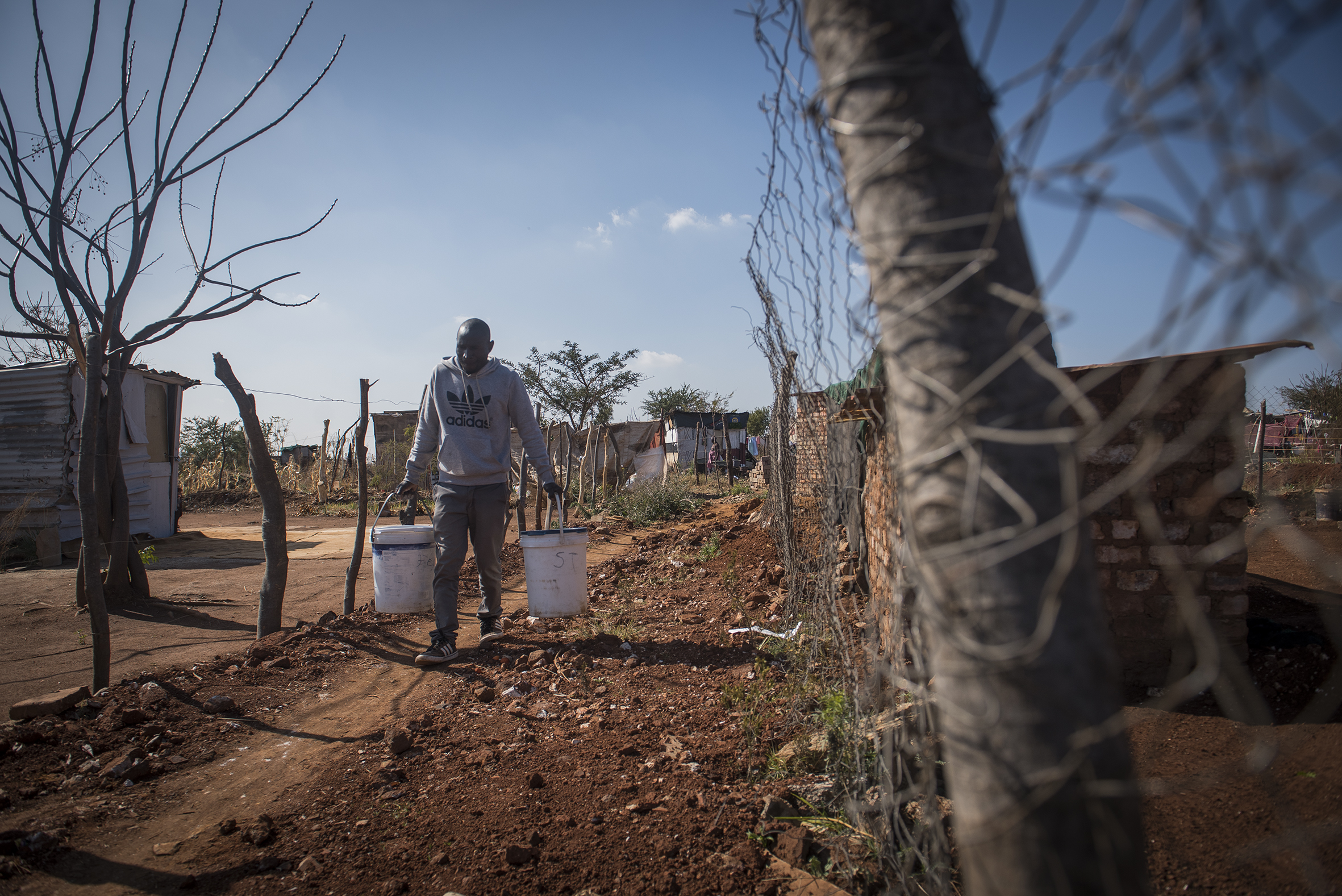
A man carries two water containers as he makes his way home. (Photo: Shiraaz Mohamed)
Efforts to collect money to buy their own 5,000-litre tank met with only partial success. Residents collected R10 from all the households living on the far end of Mooiplaats and managed to secure a small piece of land to lay down the foundation for the 5,000-litre tank. They are currently battling to purchase the tank as they have run out of funds. An appeal is being made to anyone who could assist them in securing a tank.
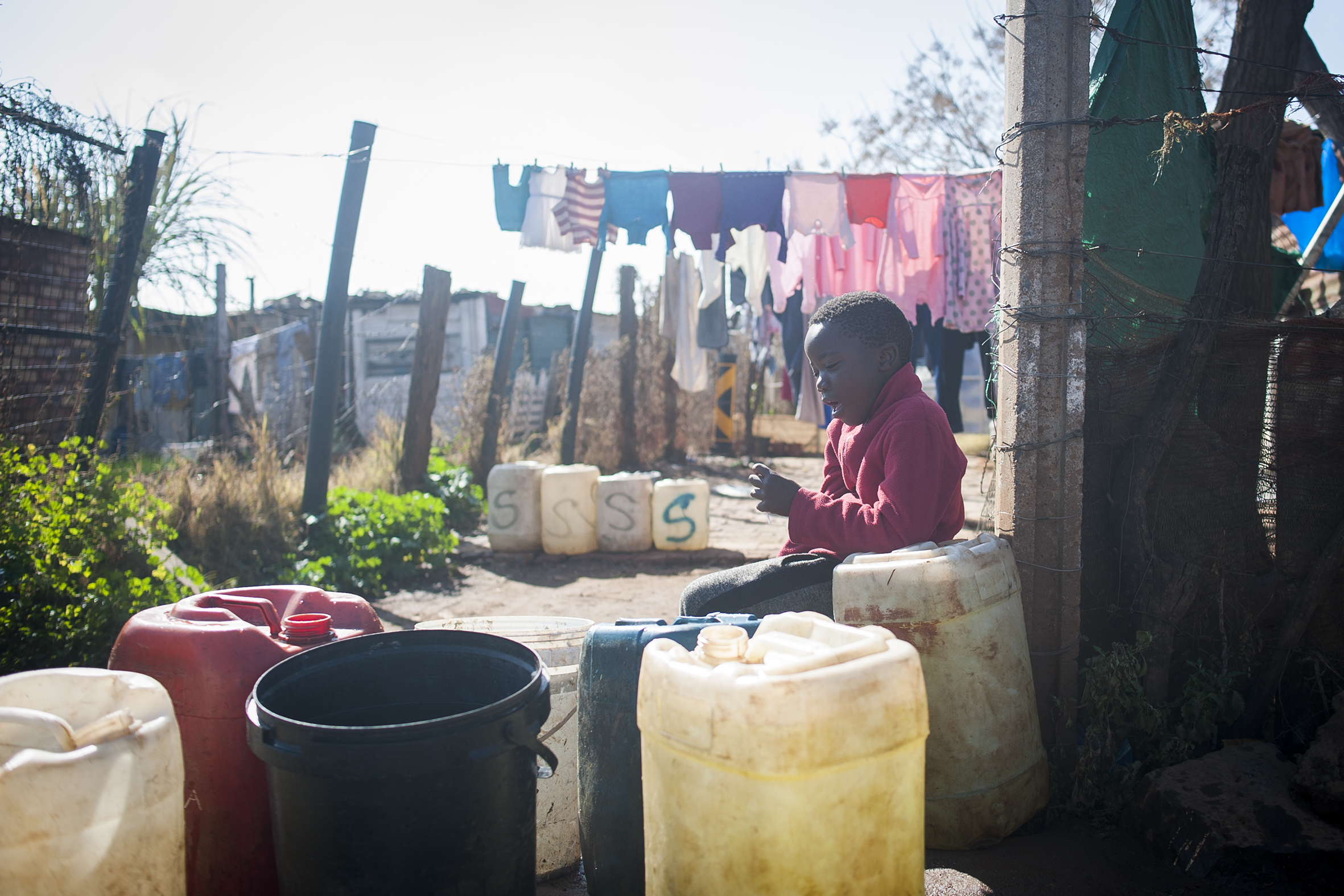
A child sits outside his yard while he awaits a wheelbarrow to transport containers filled by a water tanker. (Photo: Shiraaz Mohamed)
“The water truck is unable to come to this part of the settlement. The tank will surely help us as we will not have to walk far to get our water,” said Thabo, who declined to be fully identified.
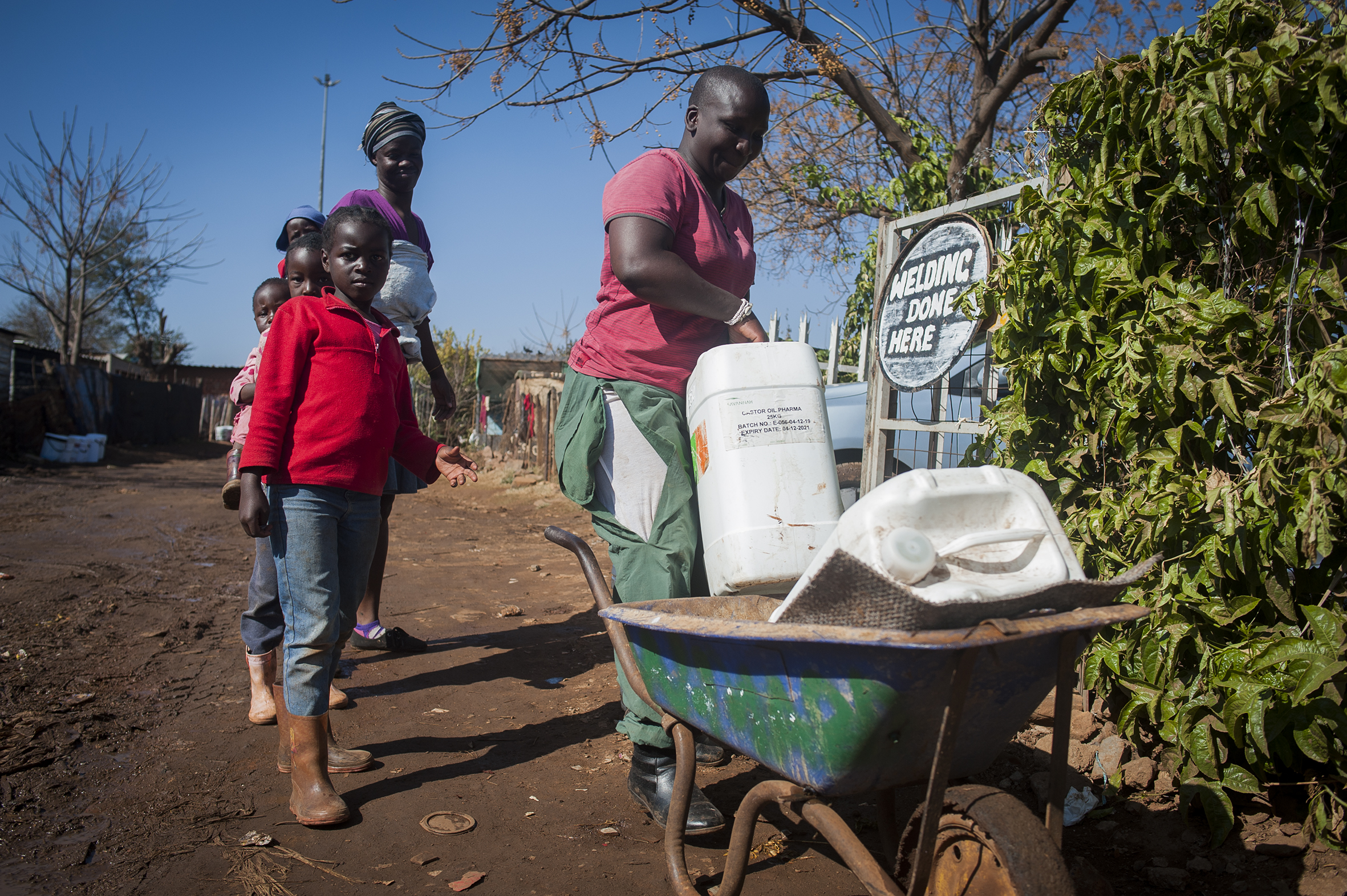
Nkensani Washimbwi loads a wheelbarrow with containers filled with water. She has to make several trips back and forth — each trip takes about 30 minutes to complete. (Photo: Shiraaz Mohamed)
City Of Tshwane spokesperson Selby Bokaba responded: “We are aware of people who are continuing to invade the land in that area and come back to demand rudimentary services from the city. They are warned to refrain from their actions, as the contract for provision of rudimentary services to informal settlements is not demand-driven, but budget-driven.
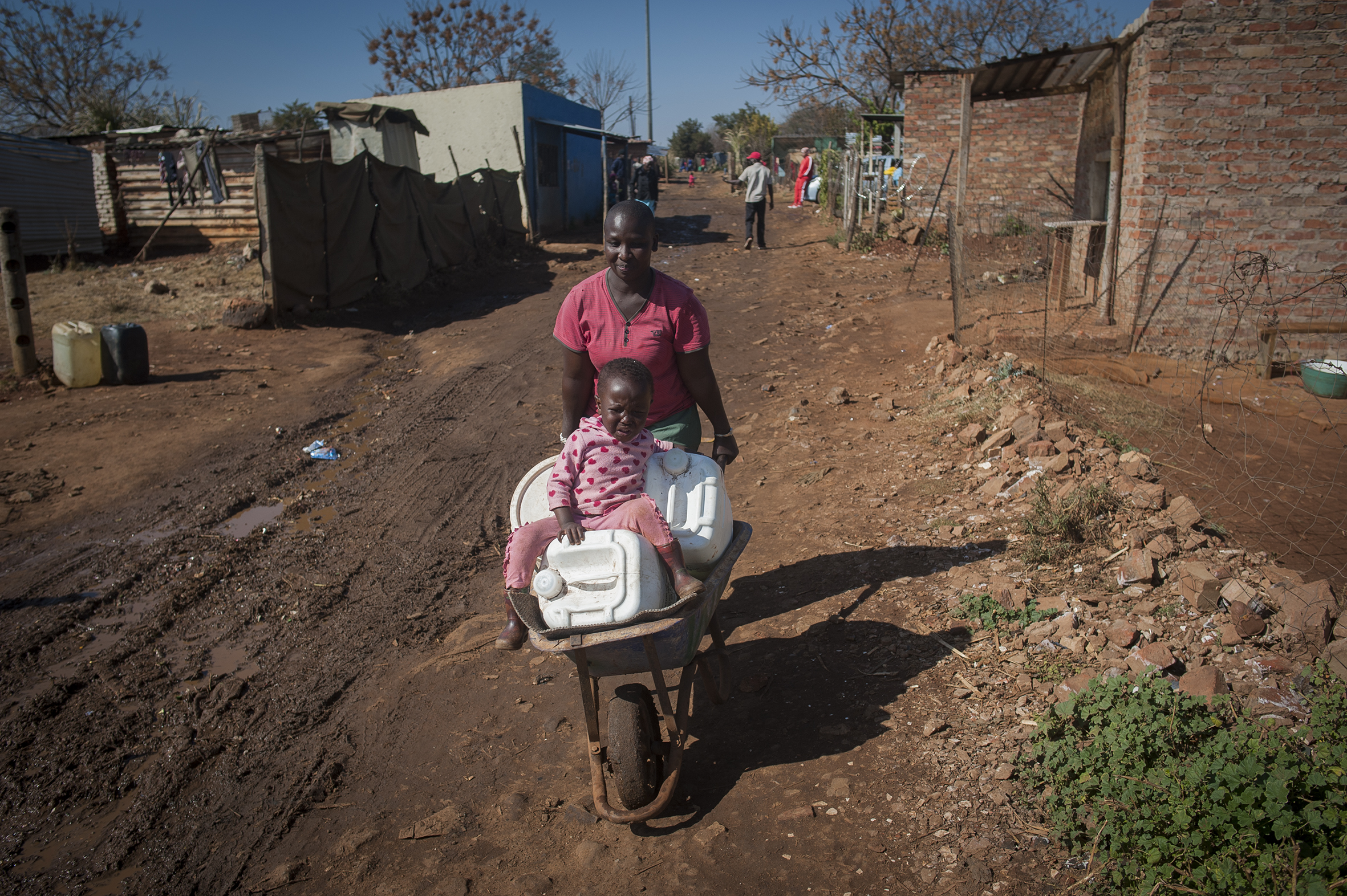
Nkensani Washimbwi pushes a wheelbarrow with containers filled with water. (Photo: Shiraaz Mohamed)

A wheelbarrow filled with containers of water outside a yard. (Photo: Shiraaz Mohamed)
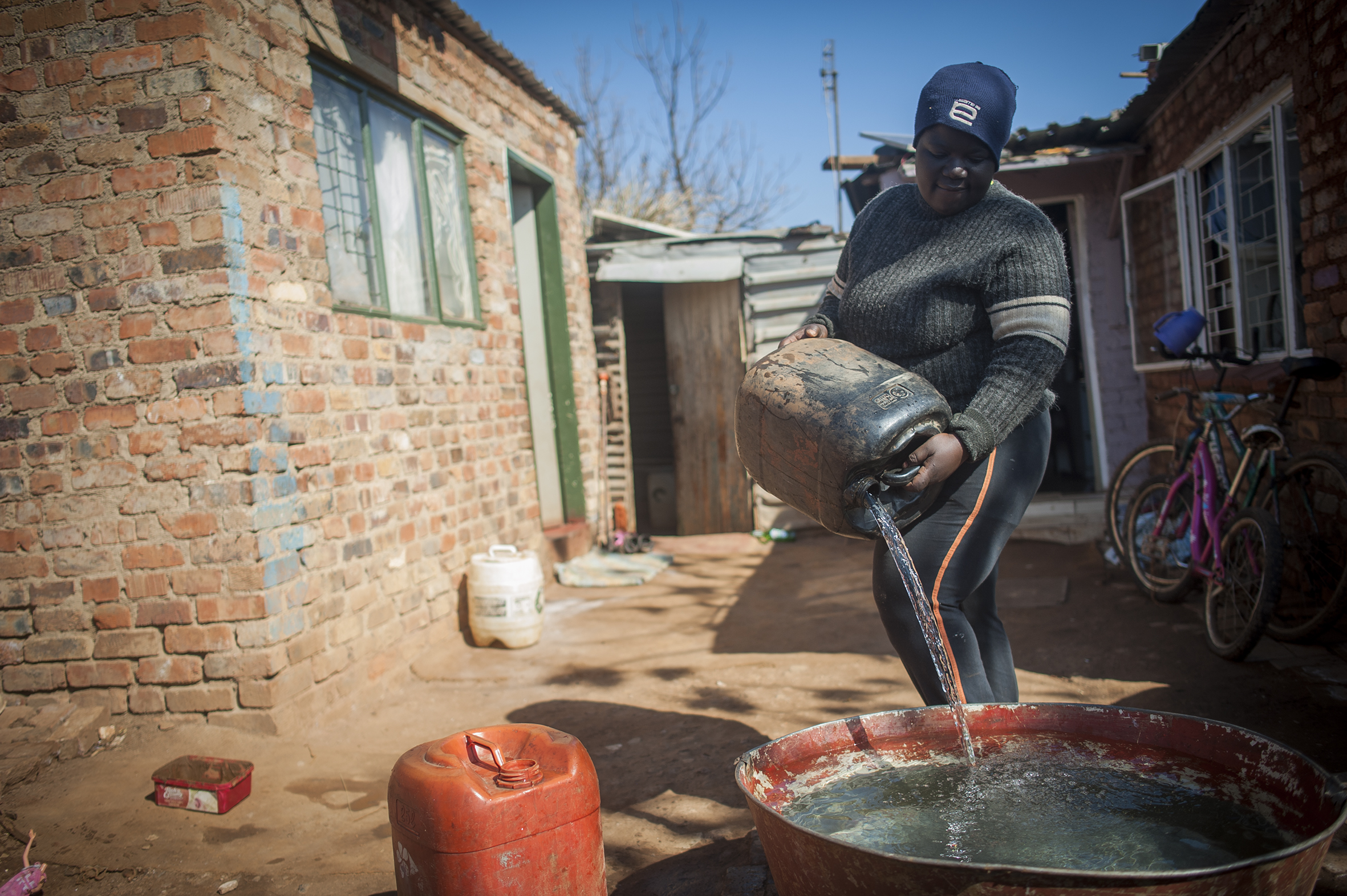
Crescencia Chikarigwi pours water into a bathtub in preparation for washing her family’s clothing. (Photo: Shiraaz Mohamed)
“This means that the city is not able to increase any water tanks and mobile water tankers, chemical toilets beyond what is currently provided. We are, however, currently providing Mooiplaats informal settlement with 22 5,000-litre water tanks.
“We fill six 10,000-litre water tanks every day and also provide eight mobile water tankers. The other part of the area has more than 10 communal standpipes that provide water to the community. We are in possession of two 5,000-litre tanks that will be distributed to Mooiplaats in the near future.” DM





















 Become an Insider
Become an Insider